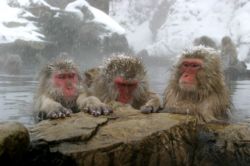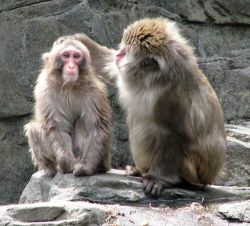

If the October edition of the International Journal of Primatology is to be believed, primate behaviourial changes may be leading to infant mortality and transmission of disease in them.
Strengthening this notion, the study conducted titled, “Primate Tourism, Range Restriction and Infant Risk Among Macaca thibetana at Mt. Huangshan, China”, clearly depicts apprehensions that tourism may be causing these changes, and in particular disease transmission, interrupting with social behaviour and causing habitat destruction.
In one such study conducted by University at Buffalo anthropologist Carol Berman observed, that tourist often tend to feed the monkeys which in turn leads to a change in the social structure and relationships between the monkeys who get prone to compete for such handouts.
According to Berman, augmentation was witnessed in the infant morality rates during the management years as compared to the years before management began and also in the year in which it was suspended.
Similar results were found in studies being conducted in several countries of the world, which included among others, Southeast Asia, East and West Africa, Madagascar, and Central America.
Only proper planning and management can lead to wildlife tourism, which in turn can lead to the primate conservation.
After management began, we observed serious attacks on infants shortly before they were found dead and a large proportion of infant corpses had bite wounds. Typically, infants were wounded after aggression broke out among adults in the provisioning area used for tourist viewing, and adult aggression rates in the provisioning area were positively correlated with infant mortality over time.
Image:ABOUT, SNOWJAPAN
Via: mongabay

